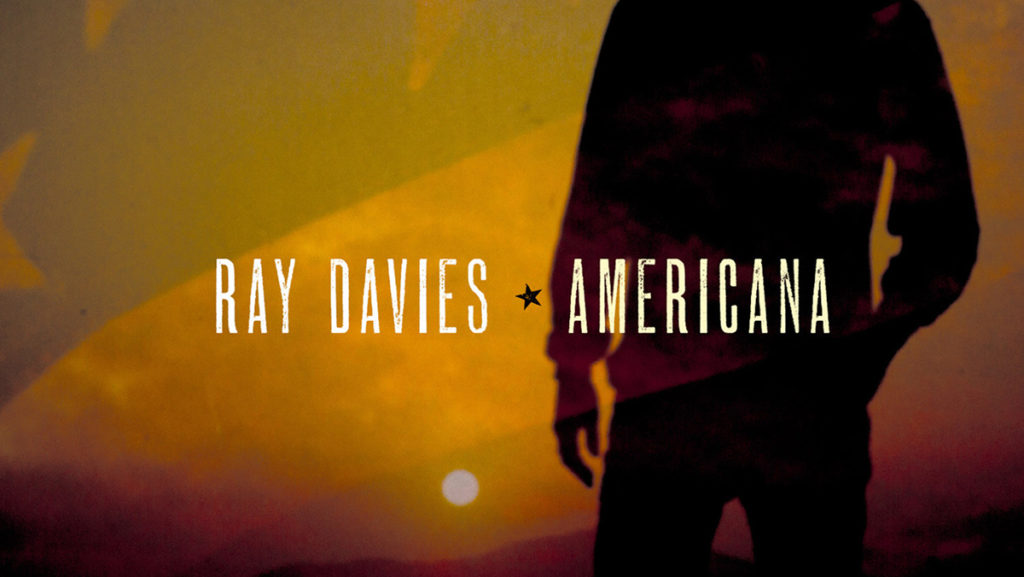Prairie roaming, mountain hiking and wild adventure are activities that evoke the promise of the American dream. Ray Davies’ “Americana,” released April 21, is a heartfelt homage to these American wonders. Unfortunately, Davies creates a stereotypical and almost comedic album, making it one of the most embarrassing musical disasters in recent memory. Despite an attempt to go through American history and assess the present American dream, Davies utterly misses the mark on what being an American really means.
The title track, “Americana,” seems as patriotic as one could get with lyrics that say, “I wanna make my home/ Where the buffalo roam/ In that great panorama.” As he sings these lyrics, it doesn’t seem like he wants to roam that “great panorama,” but rather be somewhere else entirely. His vocals and his lyrics don’t thematically gel, which undermines his commentary on the American experience. The song is lifeless and brings nothing to the table.
Davies also tries to imitate several classic–rock and country legends, like Elvis Presley and Johnny Cash, but doesn’t manage to capture their musical magic. In the next tracks, “The Deal” and “Poetry,” the monotony of the music, repetitive lyrics and off-tempo melodies get tiring even though they’re only the beginning of the album.
“Message from the Road” is a lullaby-esque track that seems like it came out of nowhere. In a record about county landscapes and great plains, this lullaby is out of place. The childish rhyming, awkward twangs of the banjos and off-tempo guitar solos make the listener question why Davies added the track on the album.
In “A Place in Your Heart,” Davies sings with a cartoonishly exaggerated southern drawl. Next is “Silent Movie,” a spoken-word monologue that feels like it was just thrown onto the album. Davies tries to imitate a southern drawl, but his British accent mixes with the affectation in a way that disconnects the listeners from the track. “Rock ’N’ Roll Cowboys,” a cliched, off-pitch song about American ideals, and “Change for Change,” a dark and off-putting track, are other examples of how the album is inconsistent — they do not fit Davies’ voice at all.
“The Man Upstairs” is another uncomfortable monologue that seems oddly placed on the album, with the lyrics “The person in the apartment above me/ Must have been an insomniac also/ Because he was still shuffling around at 3 a.m./ Amazingly, he was shuffling around to the beat I had in my head.” The album seems pretentious at this point. Davies appears to believe that he is a clear storyteller and that his lyrics are profound — they’re not. He couldn’t be farther from the truth here. “I’ve Heard That Beat Before” is also repetitive of previous tracks — it could have listeners checking twice to see if they are even listening to a new song.
“A Long Drive Home to Tarzana” takes an awkward spiritual turn where Davies explains his difficult journey from New England to Tarzana, California: “It’s a long long way to paradise, isn’t it?/ In the never ending for all perfection/ And it seems like an eternity.” The journey is sacred for him, and it is the only song on the album where the intention feels genuine, though it still doesn’t fit because of its awkward lyricism. “The Great Highway” and “The Invaders” are back to the cliched country cover–band quality. Neither expresses Davies’ artistic purpose or adds anything new to the album. The last track, “Wings of Fantasy,” describes an eagle carrying the American dream on its wings. “Fly on the wings of fantasy/ High on the wings of fantasy.” If this doesn’t scream cliche, nothing will.
It is surprising that the founder of famous English band “The Kinks” could create such an empty, shallow album. It is astonishing that the man who made this disaster of an album is an inductee of the Songwriters Hall of Fame and was knighted as part of the New Year’s honors for the arts. Davies is clearly a talented man, and he poses many pertinent questions and is unafraid to challenge the American dream. But like the album as a whole, his ideas feel woefully underdeveloped.




















